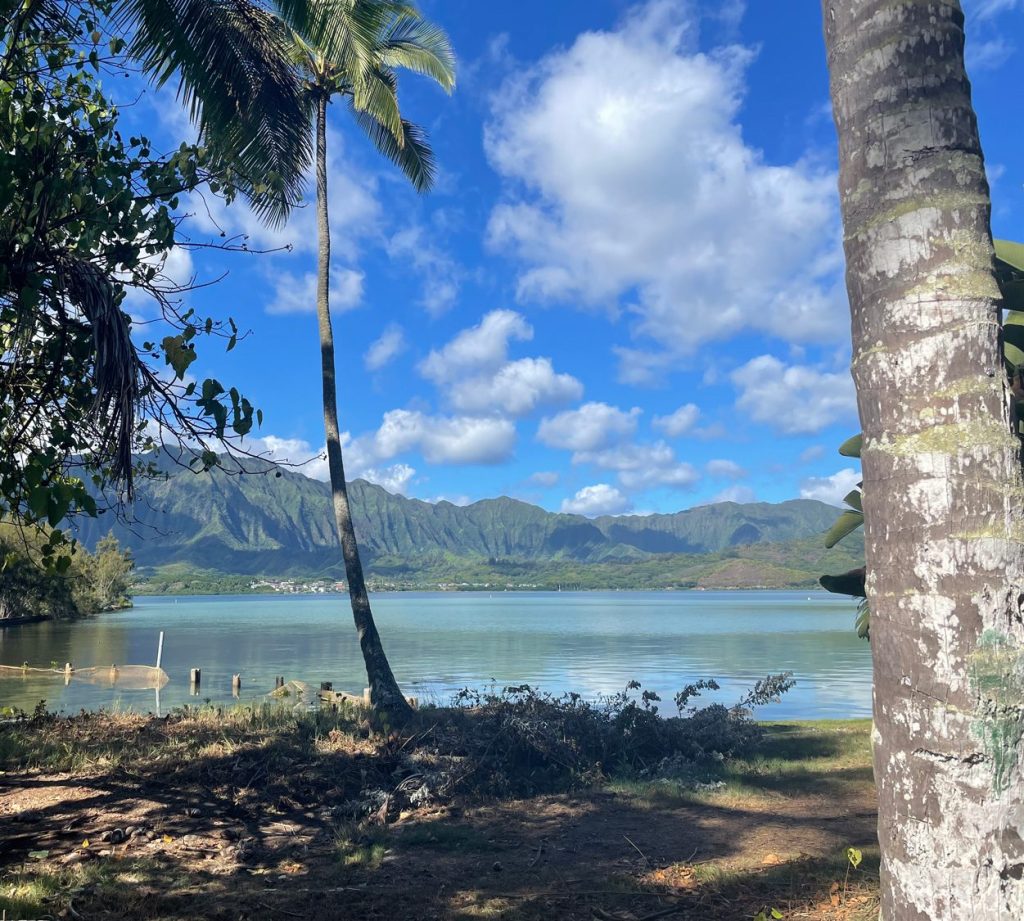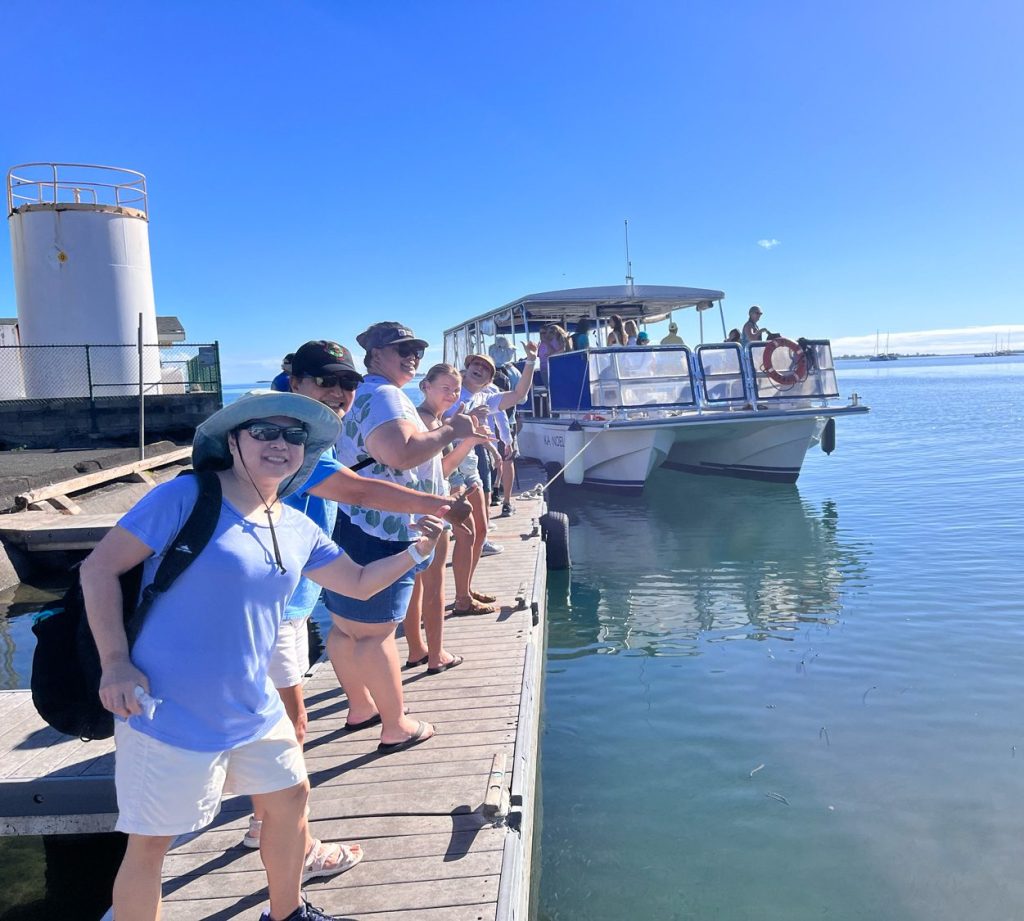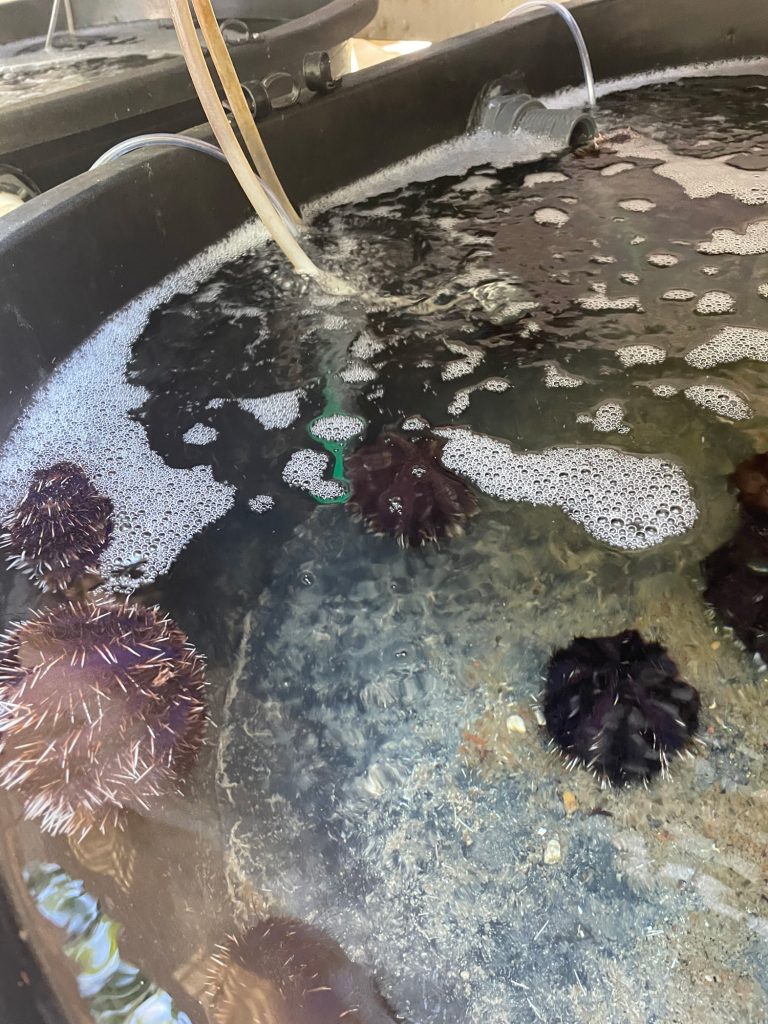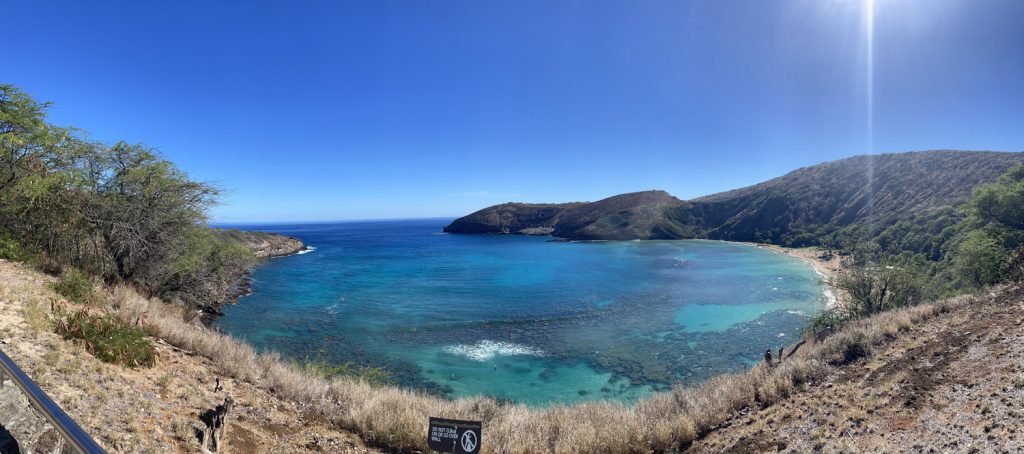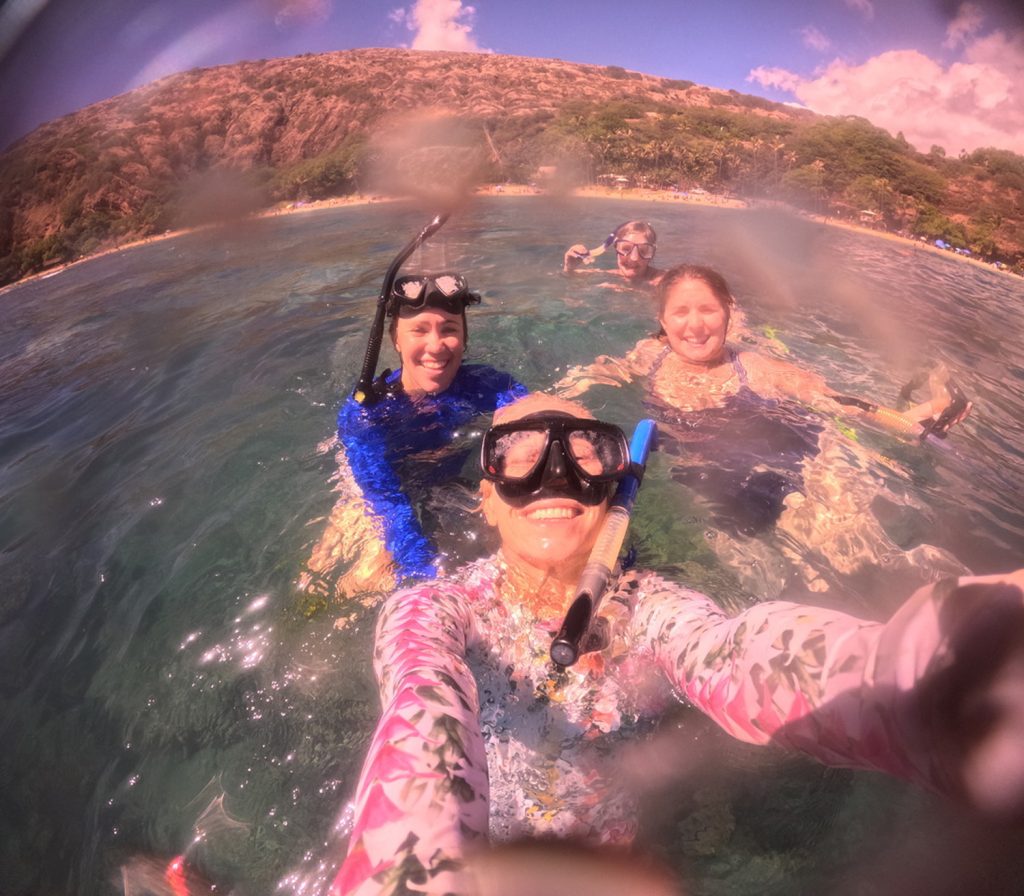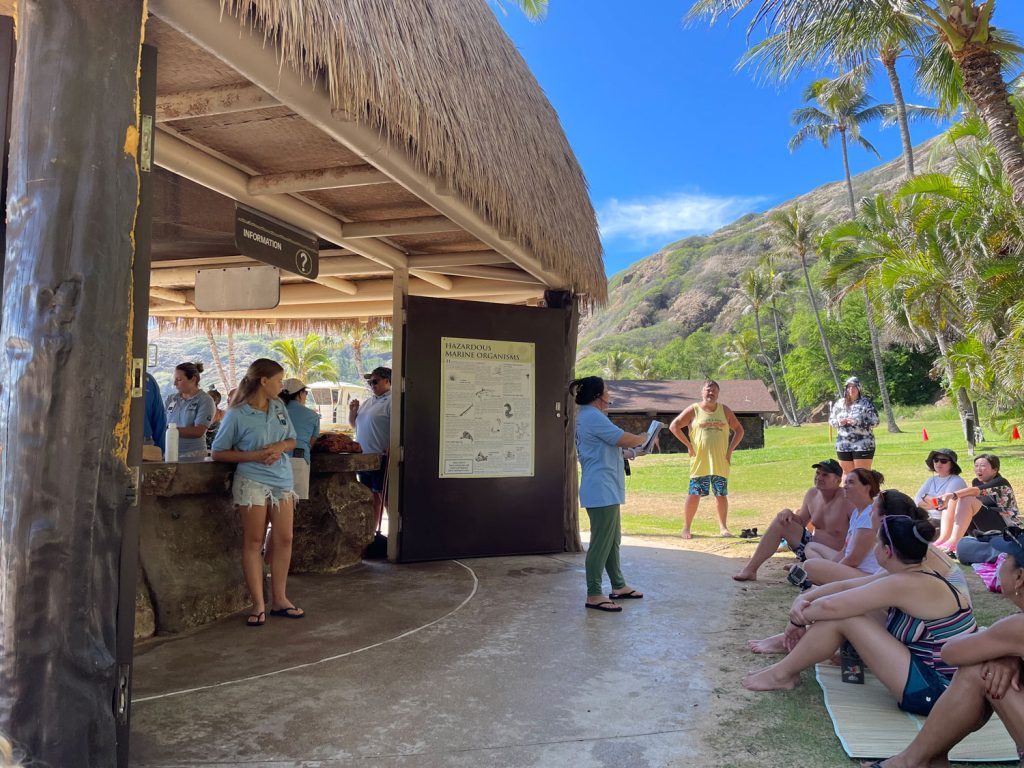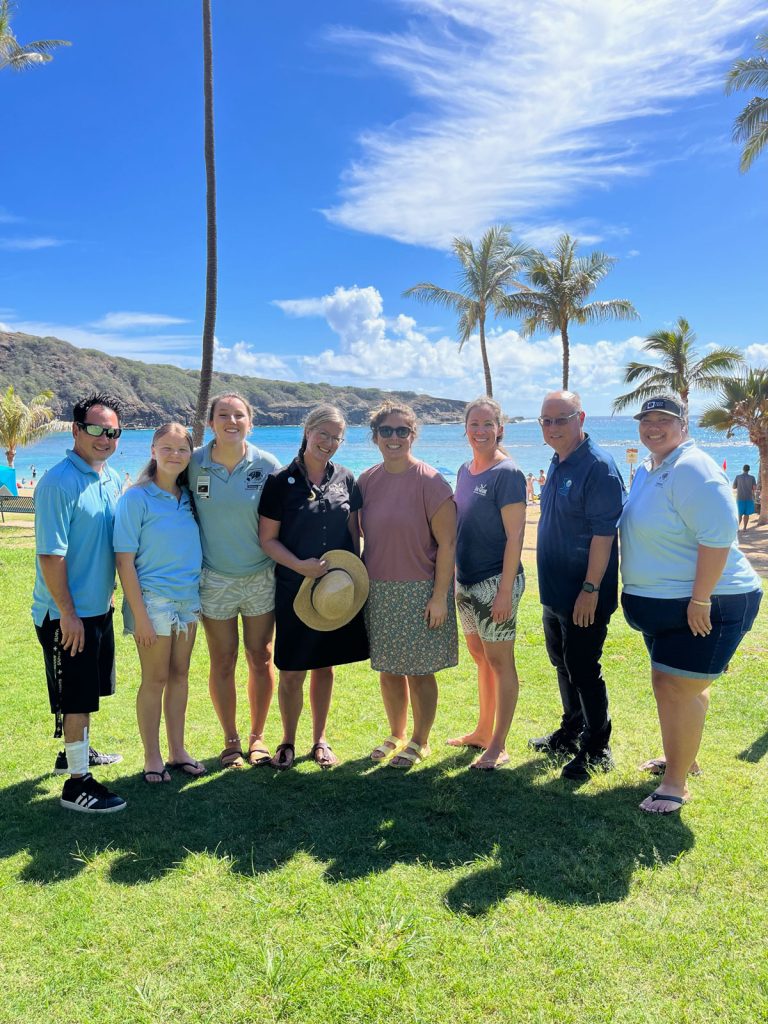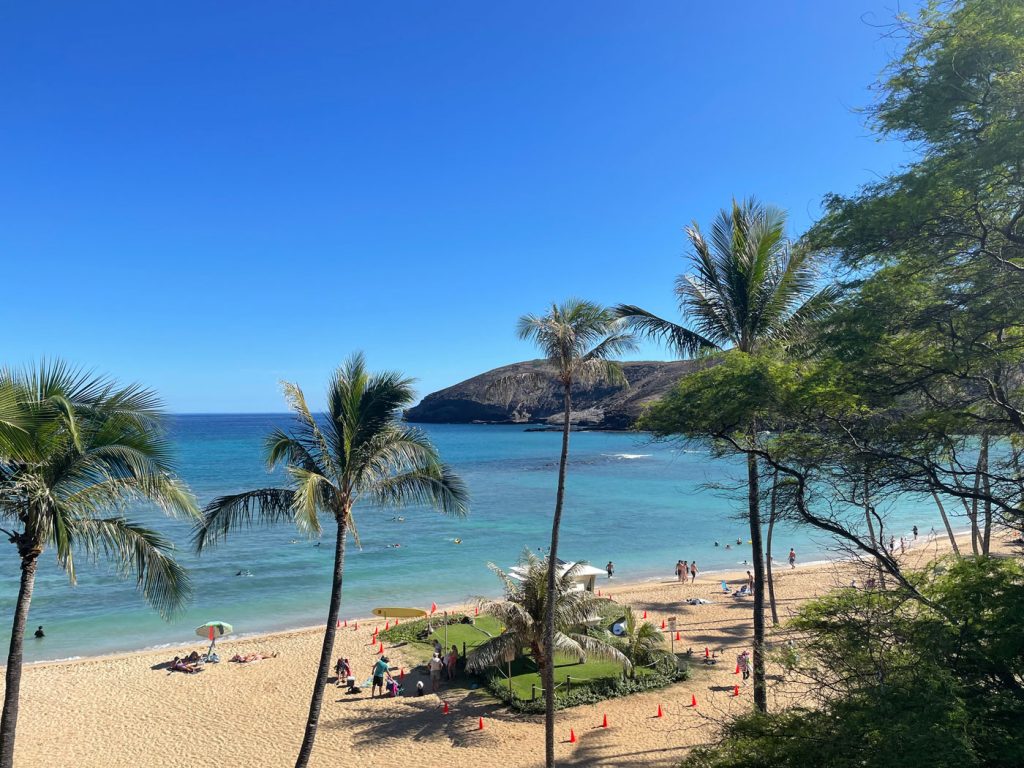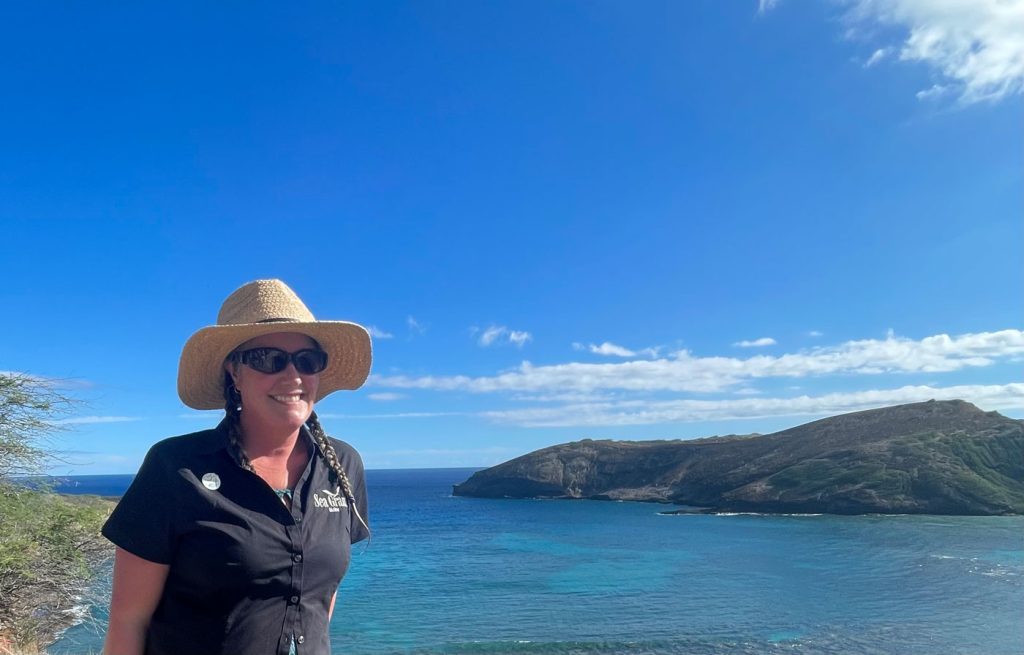
An Educator’s Exchange Trip of a Lifetime
Contributed by Keri Kaczor, Maine Sea Grant’s Environmental Literacy and Workforce Development Program Manager.
As the education and workforce development lead for Maine Sea Grant, I have the honor of serving as our program’s liaison to the Sea Grant Educators Network (SGEN) that connects program educators from coastal and great lakes states. In 2023, the SGEN leadership secured supplemental funding from the NOAA National Sea Grant Office to support “Sea Grant Educator Professional Learning Workshop Exchanges to Cultivate Organizational Excellence.” As a part of this, host sites offered diverse experiences in educational programming spanning the network. It was a competitive process with eight award recipients, and I was thrilled to have been granted my first choice, Hawai’i!

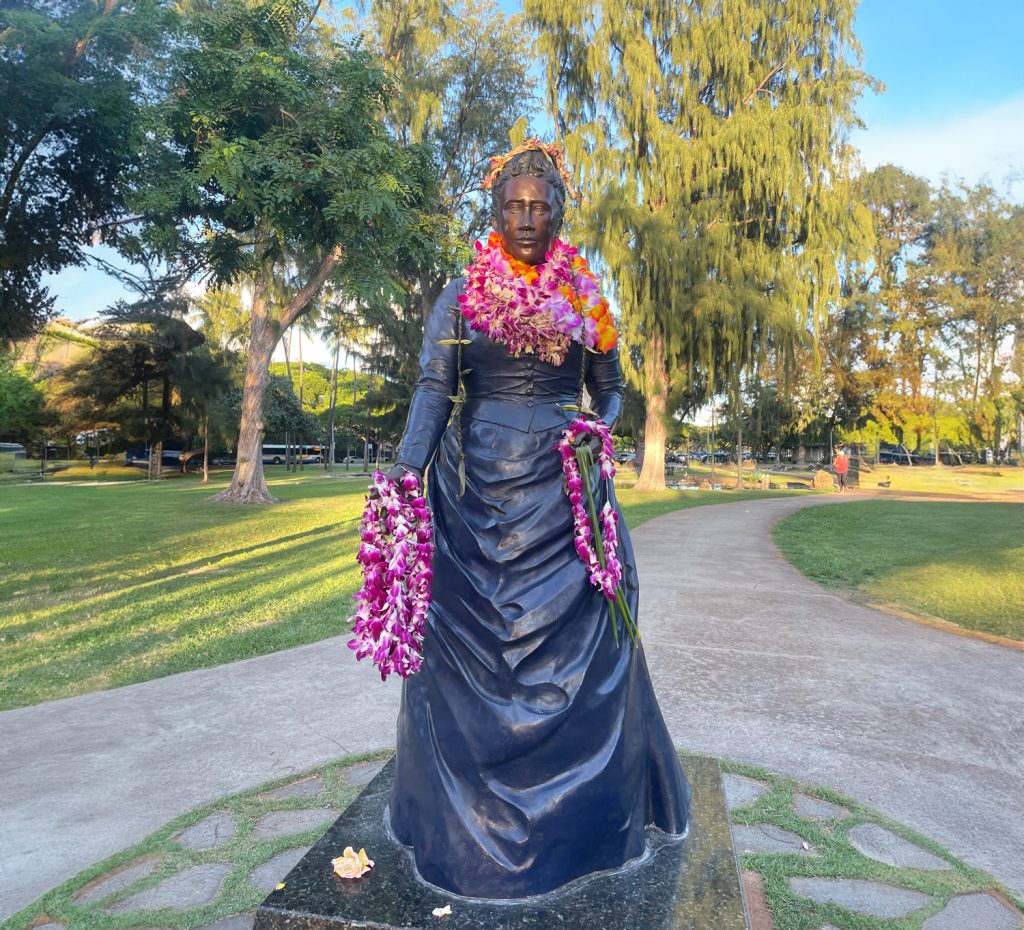
Although Oahu is about 5,200 miles away, I plan to apply much of what I learned to my work in Maine. An important element that stands out is that integrating different knowledge systems, including indigenous knowledge and different ways of knowing and experiencing the world, can strengthen our work. Also, the importance of food sovereignty and accessibility to healthy local food. I plan to bring questions to my team and other partners like: what are ways we can reach more diverse and broader audiences by connecting more closely with tourism businesses as they respond to public inquiries regarding our coastal communities/resources? Are there opportunities to work with researchers and resource managers to assess whether or not high-usage is affecting critically important habitats in Maine? What are the impacts of limiting access and charging fees on marginalized communities, and can we strike a balance? How can we help develop and promote an etiquette of respect and stewardship of our marine resources residents of all ages as well as tourists?
This is the incredible five-day schedule hosted by Hawai’i Sea Grant:
Tuesday October 24, 2023. – Moku o Lo’e- Hawai’i Institute for Marine Biology.
We boarded a boat for Coconut Island with volunteer docents from all over the world, who had decided that they wanted to spend their retirement giving back and volunteering for the Hanauma Bay Preserve. I met so many interesting people with a tremendous wealth of knowledge and experiences of Hawai’i and beyond. Dr. Kuʻulei Rogers, a coral reef ecology researcher, was on the boat and gave us a tour of the bay. We arrived at the island and toured the Institute’s laboratories, interacting with students and researchers about their work ranging from coral reefs, urchins, and tiger sharks!
Wednesday October 25, 2023 Waikalua Loko Iʻa (Ancient Hawaiian Fishpond). I joined a group of STEM afterschool educators from around the Hawai’ian Islands interested in integrating ancient fishponds into their local curriculum. Uncle Herb from the Pacific American Foundation (PAF) was our guide. This was the first time I was introduced to the Oli.(chant). It’s a way to give thanks for the hospitality, love, generosity and knowledge that you’re about to receive, as well as seeking permission to enter sacred places. The voice inflections, the pronunciations all matter greatly. Uncle Herb let us off the hook easily and let us pass once he could hear all 16 of our voices.
Today, few of these fishponds remain. Historically, mountain streams moved through taro patches and fed the ponds/impoundments that exchanged water from the sea. Small fish could enter the ponds through the gates, but couldn’t escape as they grew larger. This was a convenient way to feed a community rather than a long day of fishing at sea. PAF, Hawai’i Sea Grant, and others are working on pond restoration efforts including conducting aquaculture research in above-ground tanks adjacent to the impoundment. There’s strong interest in growing food locally as most of it is imported. COVID-19 was a rude awakening as food transport via planes and ships was disrupted, and grocery stores hold only about three days (or less) of food. For food sovereignty and cultural reasons, Hawaiian communities are supportive of restoring these ancient fishponds.
Thursday Oct. 26, 2023 –Hanauma Bay State Park– A treasured coral reef marine ecosystem, the bay rests within a volcanic cone. Native Hawaiians have been enjoying the bay for thousands of years, and in 1967, it was declared a Marine Protected Area. Development and tourism pressures were causing damage to the ecosystem; therefore, the City and County of Honolulu formed a conservation plan. As a part of this, they forged a partnership with Hawai’i Sea Grant to create the Hanauma Bay Education Program. COVID-19-related shutdowns highlighted how the ecosystem benefits from rest and limited access. For example, changes in fish behavior, reef sedimentation and water turbidity- the scouring effect of sand kills coral larvae. Without visitors, conditions improved at the Bay, bigger fish came closer to shore and water clarity significantly improved. Currently, the Bay is limited to 1,400 visitors per day, reservations are staggered, and visitors are required to hear talks, and watch videos about the value of marine resources and reef etiquette.
I went through a special orientation in a conference room with two Make-a-Wish families, and then was able to meet the education team, and Extension Leader. We toured the facilities, listened to an educational coral reef fish talk, and snorkeled! I wouldn’t have dared to venture out into the outer bay alone, nor would I have seen a fraction of the incredible ecosystem without the guidance and expertise of Hawai’i Sea Grant educators! That evening, I was able to meet other Hawai’i Sea Grant staff at a delicious dinner they hosted in Honolulu.
Friday Oct 27, 2023. Hanauma Bay Part-2. I opted to return to the Bay to shadow docents and educators at various stations within the park to better understand how they approach engaging with large crowds on a very tight timeline. The initial orientation was delivered by a retired pediatrician who wanted to give back to his community. Down at the beach education desk, the two docents had collectively spent over 50 years interacting with the Bay. I learned that field guides can only get you so far, and that telling personal stories about local knowledge and experience is incredibly engaging for all ages.
Saturday Oct 28, 2023. Intertidal Limu Survey. I joined a group of undergraduate students from UH Mānoa on a field excursion led by Dr. Joanna Philippoff. This was part of a long-term data collection effort, a survey of substrate and limu (algae), to monitor the health of the intertidal zone. We laid down quadrats at established GPS locations along seven transects parallel to the shoreline. I was honored to be able to tag along and learn from the group!
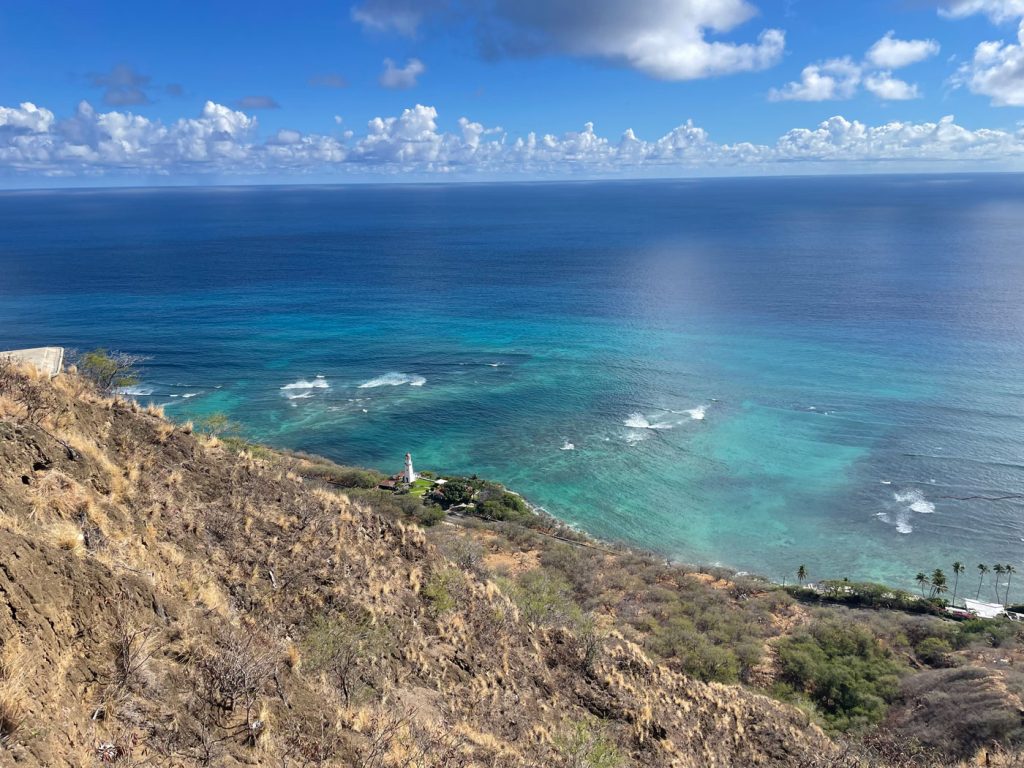
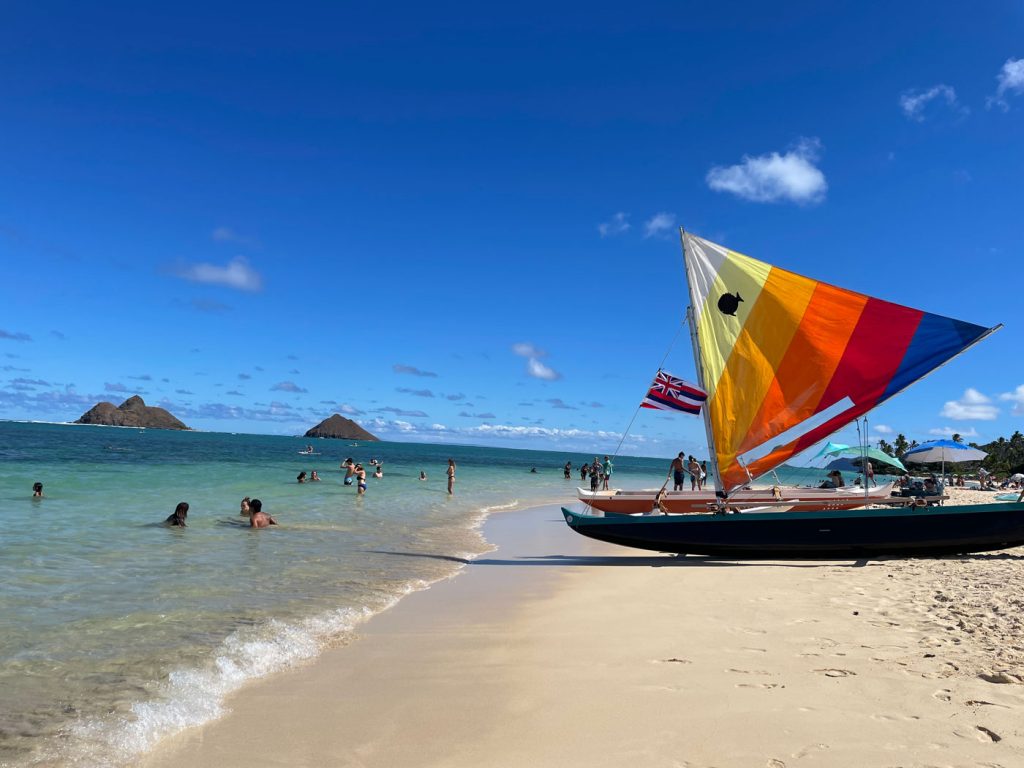
I will forever be grateful for my amazing adventure and all that I learned and experienced on my Educator’s Exchange Trip of a Lifetime.
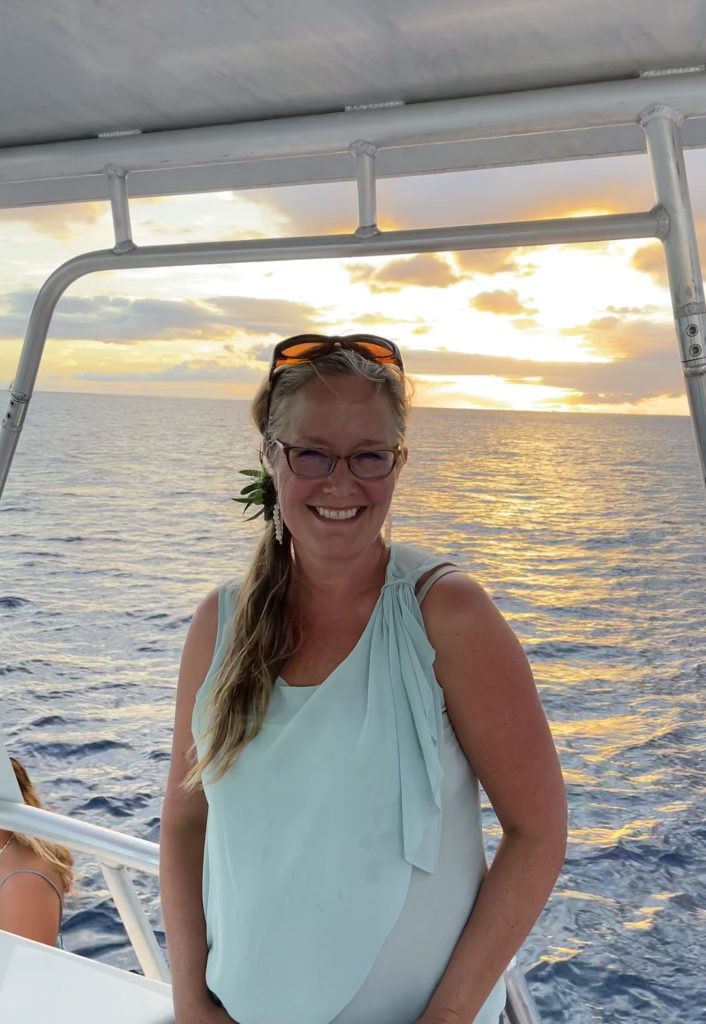
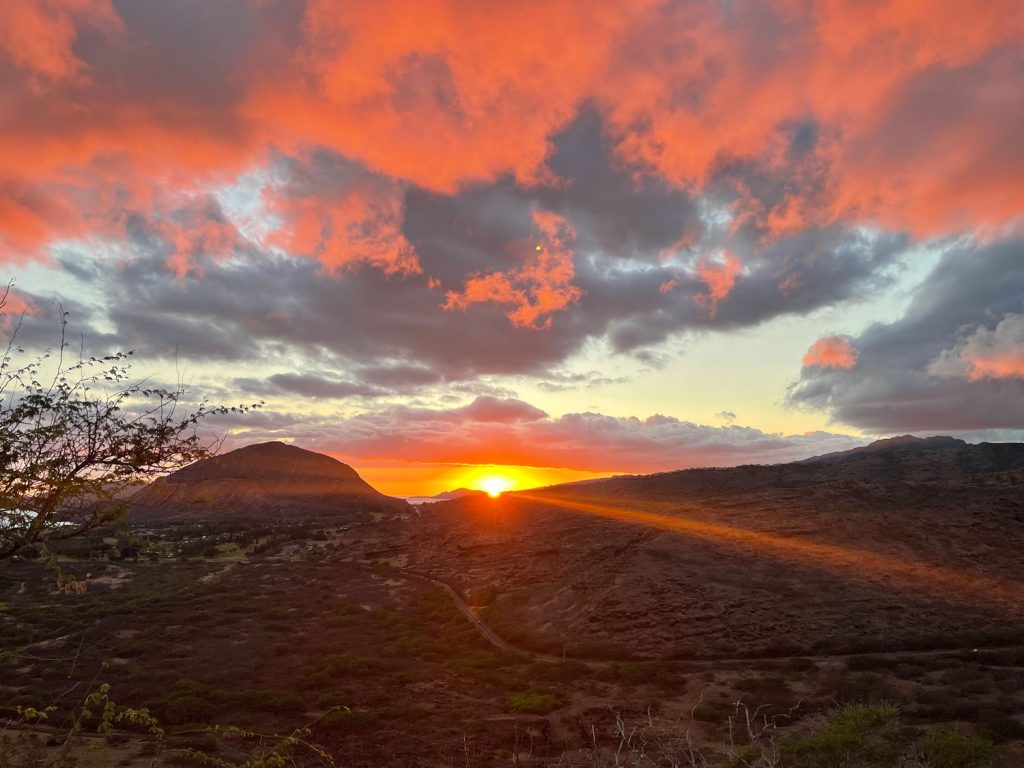
A Hawaiin sunset looking toward Diamond Head, Honolulu.
Posted 21 March 2024

